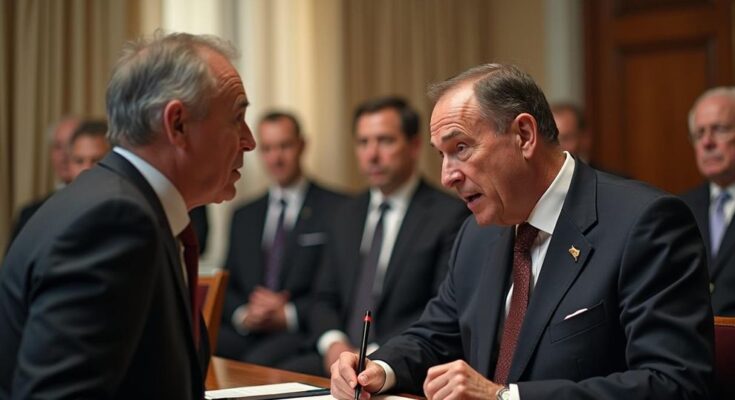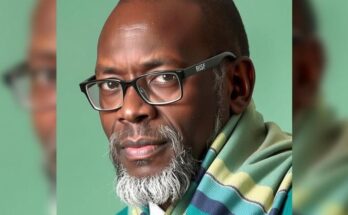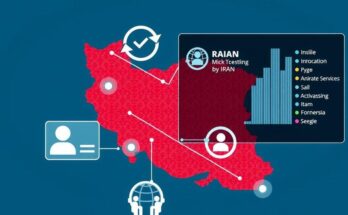On November 17, 2022, Dutch Prime Minister Mark Rutte apologized to Indonesia for the systemic violence perpetrated by the Netherlands during the Indonesian war of independence from 1945 to 1949. This acknowledgment follows a comprehensive historical review that documents the extensive atrocities committed by Dutch forces, contradicting previous claims of sporadic violence. Rutte expressed profound regret for the actions and the historical complicity of the Dutch government.
On November 17, Dutch Prime Minister Mark Rutte formally apologized to Indonesia in response to a comprehensive historical review that revealed the Netherlands’ involvement in systemic and excessive violence during the Indonesian war of independence from 1945 to 1949. This investigation, conducted by three historical research institutes over a span of four years, challenged the long-standing belief held by the Dutch government that military actions during this period were characterized by sporadic violence. The study documented that atrocities committed in what was once known as the Dutch East Indies were executed in a systematic manner, comprising of “extrajudicial executions, ill-treatment and torture, unlawful imprisonments, and other forms of violence.” The research concluded that the violence perpetrated by the Dutch military was extensive and largely intentional, facilitated by a collective sense of complicity among political and military leaders, as well as legal authorities, who maintained knowledge of these actions but chose to ignore or justify them in pursuit of victory in the war. Historically, the atrocities had first emerged into public discourse in 1969 through a testimony from a former Dutch veteran; however, the government had previously dismissed these claims, asserting that the military operated correctly, claiming only isolated incidents of violence. During his address, Prime Minister Rutte expressed profound regret, stating, “For the systematic and widespread extreme violence from the Dutch side in those years and the consistent looking the other way by previous governments, I apologize deeply to the people of Indonesia.” He acknowledged the necessity of confronting these findings, labeling them as “harsh, but unavoidable.” Furthermore, he emphasized that the Dutch government accepts full accountability for the past, recognizing it as a collective failure, indicating a significant shift in the Netherlands’ official stance on its colonial history with Indonesia. This apology marks an important step, as it is not only an acknowledgment of the past atrocities but a recognition of the conscious efforts made by the state to overlook these crimes. Though this is not the first occasion of apology from the Netherlands towards Indonesia, it is unprecedented in its acknowledgment of a deliberate campaign of violence here associated with Dutch colonial rule. King Willem-Alexander had offered a prior apology for “excessive violence” in March 2020, and Dutch Foreign Minister Bert Koenders expressed regret for a specific massacre in 2016; however, Rutte’s apology constitutes a broader acknowledgment of systemic violence sanctioned by successive Dutch governments.
The relationship between the Netherlands and Indonesia has been marred by a complex history that includes colonization and the violent struggle for independence. Indonesia’s quest for independence began after World War II, culminating in a series of violent confrontations with Dutch colonial forces from 1945 to 1949. Despite the historical awareness of conflict, the extent of atrocities committed by Dutch forces was long downplayed by successive Dutch governments. The historical review initiated by the Netherlands aimed to reassess this period critically, providing a more nuanced and factual depiction of the events that transpired during Indonesia’s struggle for independence.
The Netherlands’ recent apology to Indonesia marks a significant moment in acknowledging the historical injustices made during the Indonesian war of independence. This acknowledgment not only reflects a shift in the Dutch government’s perspective regarding its colonial past but also signifies a broader commitment to confronting historical wrongs directly. As further research on this topic emerges, it is essential for historical narratives to be reassessed transparently, fostering a more accurate understanding of colonial legacies.
Original Source: www.newsfirst.lk




